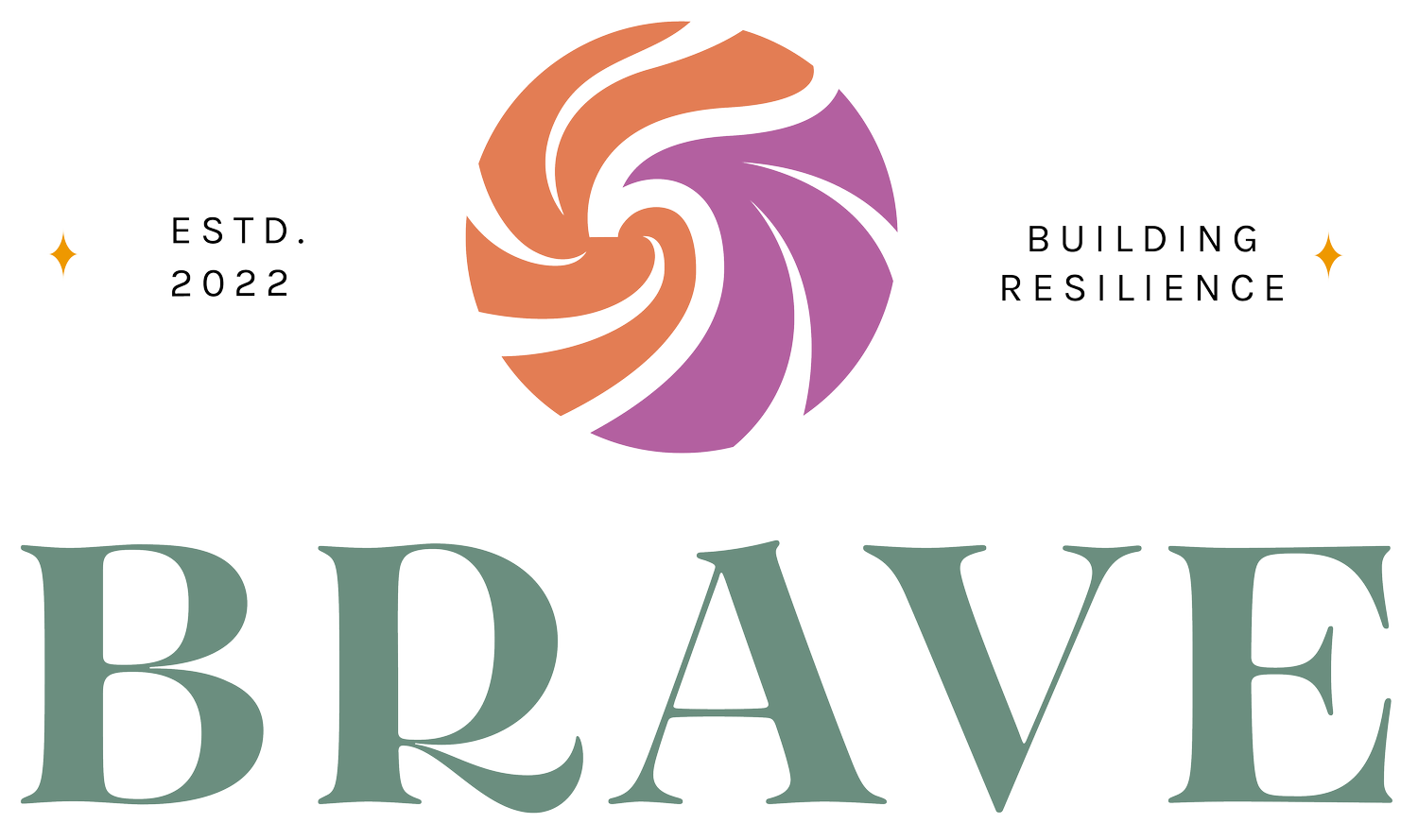Beyond Self-Care: Healing Your Heart While Healing Others as a Trauma Therapist
Vicarious Trauma is Universal and Self-Care is Not Enough
As a trauma therapist, you do such important work.
I know you love your specialty, I do too! But we can’t ignore the heavy emotional toll it takes on us. Let’s also not pretend that all the talk about “just practice self-care” doesn’t get to you.
That shit pisses me off!
And yes, of course self-care is necessary, but it is NOT sufficient to address your unique needs as a badass trauma therapist.
Before we get too far into this rabbit hole though - whether you’re new here or you’ve been around for a while, let’s make sure we’re speaking the same language and agree on a definition of vicarious trauma.
Vicarious trauma happens as a result of being an empathic helper, healer, and trauma therapist. One of your greatest strengths is your empathic nature, but your empathy also acts as a sponge 🧽 to soak up the stress and trauma you are helping to heal with your clients.
Even though it is inevitable, it’s not necessarily a bad thing when you have the right kinds of supports and care that you deserve to manage vicarious trauma in realistic and sustainable ways.
If you don’t, though, your exposure to others’ suffering can take a toll on your mental, emotional, and physical health.
Why Isn’t Self-Care Enough to Heal Vicarious Trauma?
Of course self-care is important, I’m not here to argue that, but it’s not a magic solution. It is totally insufficient to expect that taking a bubble bath or luxuriating in your favorite chocolate is going to heal the effects of vicarious trauma. It’s also important, though, to acknowledge the ways that “just practice self-care” has been weaponized against us as therapists and trauma specialists.
The expectation of others that we “just take care of ourselves” furthers our own internalized stigmas and beliefs that we’re not allowed to be affected by this work. It strengthens the belief that we’re not “good enough” or “strong enough” or “cut out for this work”, all of which are wrong.
Ok, soap box over (for now 😉).
All that to say, the reality is that as trauma therapists, we have to dig deep to first give ourselves permission to Name vicarious trauma so that we can develop strategies to help Tame and manage the effects of vicarious trauma.
Naming Vicarious Trauma
One of the first things you must be able to do is recognize the signs of vicarious trauma. For me, it usually starts with feeling more irritable and on edge coupled with wanting to isolate and withdraw from the people I love the most. It also shows up as fatigue, headaches, and feeling totally brain dead by the end of the day.
Other signs might include feeling overwhelmed, anxious, or even having nightmares or intrusive thoughts about the work you do with your clients. You may also feel a sense of emotional numbness, detachment, or guilt. Recognizing these signs early on can help you take action to prevent the effects of vicarious trauma from spiraling out of control.
Of course, this can be easier said than done, which is why I created my free Vicarious Trauma Tracker and Mini-Course, so make sure you grab it if you don’t have it already!
Taming Vicarious Trauma Isn’t One and Done
Once we Name our vicarious trauma, we probably need to do something about it…just sayin’.
One thing to be really clear about right up front is that this is an ongoing process, NOT a one and done. Same goes for Naming VT too, while we’re at it - we have to have a regular practice of checking in with ourselves because VT likes to be a chameleon and sneak up on you!
Continually checking in with yourself allows you to make adjustments to the ways you are managing vicarious trauma in all its shapes and forms throughout your career. Sometimes you really might only need chocolate and bubble baths, while at other times you might need a lot more (and there’s nothing wrong with that!).
One of the most powerful tools I have found for Taming Vicarious Trauma is connecting with my fellow trauma therapists in supportive spaces. That’s why I started The BRAVE Trauma Therapist Collective because I know how much you deserve to be cared for in a private and non-judgmental setting.
Spaces like The BRAVE Collective provide ongoing resources and support to help you manage vicarious trauma over the long-term.
Inside of BRAVE, we fully embrace that vicarious trauma is a natural occupational hazard of the work we love so much, and we normalize the ongoing work it takes to receive the care we deserve. The connections created inside of communities like BRAVE offer a safe space to be with fellow trauma therapists who truly get the unique challenges of your work and can offer insight, encouragement, and support when you need it most.
Next Steps - Finding the Right Community
It’s super important to choose the right community of trauma therapists, one that aligns with your values and goals while offering a supportive and non-judgmental environment. There is no one-size fits all approach to healing vicarious trauma through community, and just like we recommend when someone is looking for a therapist, it’s important to “try on” these kinds of supports to make sure they are right for you.
When you are searching for a community of trauma therapists, I would recommend asking yourself the following questions:
Is this a space where I feel safe, supported, and inspired when I interact with the other trauma therapists here?
Does this community offer the right kinds of resources, education, and support to help me learn how to Name, Tame, and Reframe vicarious trauma?
Is this a flexible community where I can get the support and connection I need without being tethered to others’ schedules?
How does this community meet my emotional needs as a trauma therapist in cost-effective ways? Is it going to break the bank?
These are all important questions to ask about The BRAVE Trauma Therapist Collective and any other potential communities or sources of support for yourself as a trauma therapist.
And remember - even though "self-care" alone is not enough to address the complex and ongoing effects of trauma work, recognizing the signs of vicarious trauma, developing ongoing strategies, and finding the right support and community really can make a big difference in how you feel professionally and personally.
The combined impact of these practices will help you manage the effects of vicarious trauma so you can continue doing the work you love with renewed energy and resilience!
Most importantly, don’t forget that you are not alone. There are people who get what it’s like to do this profound and sacred work and connecting with them can truly be life changing.



